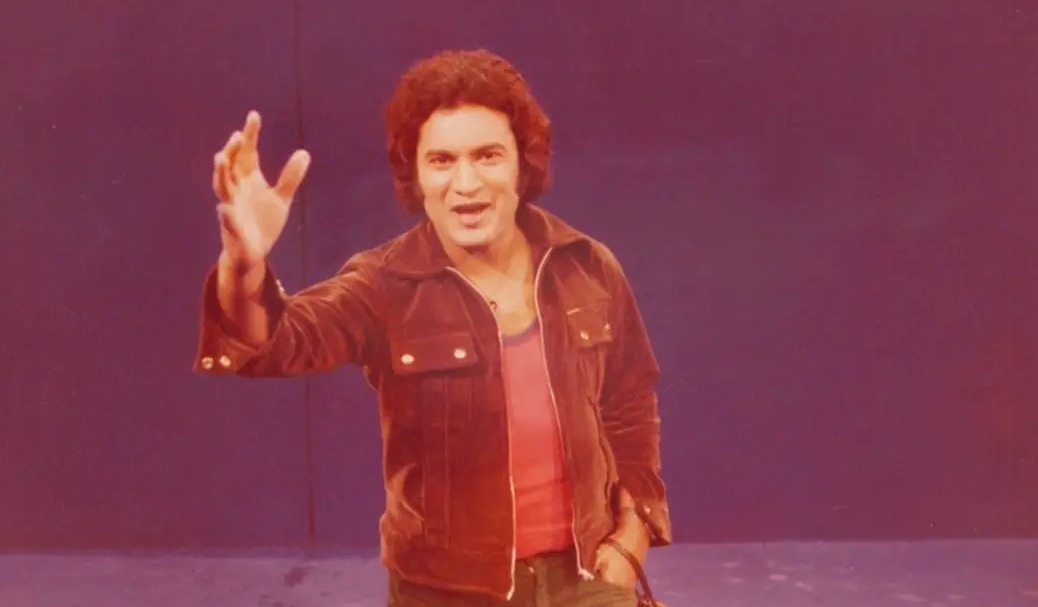Week Special
In the golden age of Pakistan’s music industry, a distinctive voice emerged that would come to define the era, leaving an indelible mark on the country’s cinematic and musical history. That voice belonged to Arthur Nayyar, better known by his stage name A Nayyar, a Christian singer whose contributions to Pakistan’s entertainment world continue to be celebrated even years after his passing. A Nayyar’s journey as a singer was not just a personal triumph but also a reflection of the pluralistic ethos of Pakistan’s cultural landscape.

Early Life and Humble Beginnings:
Born in 1950 in Faisalabad, A Nayyar belonged to the Christian community in Pakistan, which has historically made significant contributions to the country’s music and entertainment industries despite facing social marginalization. From an early age, A Nayyar exhibited a deep love for music, one that was nurtured in his local church, where he sang hymns. His passion for singing eventually led him to participate in talent shows and music competitions, where he quickly garnered attention for his powerful voice.
Nayyar’s formal introduction to the world of professional music came when he relocated to Lahore, the hub of Pakistan’s film industry, in the early 1970s. It was here that his talent caught the attention of music directors, and in 1974, he got his big break with the song “Yunhin Din Kat Jayen, Yunhi Shaam Dhal Jaye” for the film Bahisht. This track was composed by A Hameed and became an instant hit, marking the beginning of an illustrious career that would span several decades.

Career Highlights and Musical Contributions:
A Nayyar’s voice was soon recognized as one of the most versatile in the Pakistani music industry, especially in the film sector. He sang for many of the top actors of the time, including Nadeem, Ghulam Mohiuddin and Waheed Murad, becoming the playback voice behind many memorable cinematic moments. His powerful, rich vocals and ability to emote through music made him a favorite among composers and directors.
Nayyar’s unique voice was often compared to that of renowned singer Ahmed Rushdi, and the two were considered among the most iconic voices of their time. He was particularly known for his duets with famous female singers like Mehnaz Begum and Naheed Akhtar. Some of his most celebrated songs include:
“Ik Baat Kahun Dildara” from Mitti Kay Putlay (1975)
“Sathi Mujhay Mil Gaya” from Mujhay Jeenay Do (1976)
“Milay Do Saathi Khush Raho” from Aag (1979)
His collaboration with the best music composers of Pakistan, including Robin Ghosh, M Ashraf, and Nisar Bazmi, helped shape the sound of Pakistani cinema during the 1970s and 1980s. Despite the rise of pop music in the 1990s, Nayyar continued to perform and remained a respected figure in the music industry.

A Nayyar: Breaking Barriers
A Nayyar was not just a talented singer; his success was also a testament to the cultural inclusivity that existed within Pakistan’s entertainment industry at the time. As a member of Pakistan’s minority Christian community, Nayyar’s rise to prominence in a Muslim-majority country’s film industry was an example of how talent could transcend religious boundaries.
Nayyar himself often spoke about the respect he received from his colleagues, noting that he never felt discriminated against in the music or film industry because of his faith. His popularity and the enduring legacy of his music are reflective of the deep connection he forged with listeners across all walks of life. His presence on stage, his humility, and his dedication to his craft made him a beloved figure, not only within the Christian community but across Pakistan.
Challenges and Decline of the Film Industry:
Despite his personal success, Nayyar’s career faced challenges with the decline of the Lollywood film industry in the 1990s. The shift towards pop music, the rising popularity of Indian films, and the lack of government support for local cinema led to a decrease in demand for playback singers. Nayyar, who had built his career on film songs, found fewer opportunities during this time. Nevertheless, he continued to perform live and appeared in television shows, maintaining his connection with his fans.
Nayyar was not one to dwell on the hardships. In various interviews, he expressed pride in his work and faith in the revival of Pakistan’s entertainment industry. His optimism reflected his resilient spirit, one that saw him through decades of fluctuating trends in the music industry.

Legacy and Lasting Impact:
A Nayyar passed away on November 11, 2016, leaving behind a legacy that continues to inspire new generations of Pakistani musicians. His funeral was attended by numerous figures from the entertainment industry, all of whom paid tribute to his contributions and the joy his voice brought to countless people. He was remembered not only as a brilliant singer but also as a kind-hearted, humble individual who remained grounded despite his fame.
Nayyar’s influence on Pakistan’s film music cannot be overstated. His songs remain timeless, with younger generations discovering his work through platforms like YouTube and social media. For many, his music evokes a sense of nostalgia for a time when Pakistani cinema was at its peak, and his voice played a crucial role in shaping that golden era.
His contribution to Pakistani music also serves as a reminder of the inclusive spirit that once defined the country’s entertainment landscape. A Nayyar’s success as a Christian in a predominantly Muslim industry is a testament to the power of art to transcend boundaries, unify communities, and bring joy to people from all walks of life.

Arthur Nayyar’s voice was the soundtrack to countless moments in Pakistani cinema, and his legacy endures as a symbol of excellence, diversity, and resilience. Today, as Pakistan’s music industry continues to evolve, the timeless contributions of
A. Nayyar serve as both an inspiration and a reminder of the nation’s golden past.


